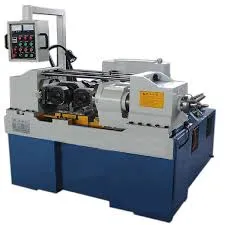
-
 Afrikaans
Afrikaans -
 Albanian
Albanian -
 Amharic
Amharic -
 Arabic
Arabic -
 Armenian
Armenian -
 Azerbaijani
Azerbaijani -
 Basque
Basque -
 Belarusian
Belarusian -
 Bengali
Bengali -
 Bosnian
Bosnian -
 Bulgarian
Bulgarian -
 Catalan
Catalan -
 Cebuano
Cebuano -
 Corsican
Corsican -
 Croatian
Croatian -
 Czech
Czech -
 Danish
Danish -
 Dutch
Dutch -
 English
English -
 Esperanto
Esperanto -
 Estonian
Estonian -
 Finnish
Finnish -
 French
French -
 Frisian
Frisian -
 Galician
Galician -
 Georgian
Georgian -
 German
German -
 Greek
Greek -
 Gujarati
Gujarati -
 Haitian Creole
Haitian Creole -
 hausa
hausa -
 hawaiian
hawaiian -
 Hebrew
Hebrew -
 Hindi
Hindi -
 Miao
Miao -
 Hungarian
Hungarian -
 Icelandic
Icelandic -
 igbo
igbo -
 Indonesian
Indonesian -
 irish
irish -
 Italian
Italian -
 Japanese
Japanese -
 Javanese
Javanese -
 Kannada
Kannada -
 kazakh
kazakh -
 Khmer
Khmer -
 Rwandese
Rwandese -
 Korean
Korean -
 Kurdish
Kurdish -
 Kyrgyz
Kyrgyz -
 Lao
Lao -
 Latin
Latin -
 Latvian
Latvian -
 Lithuanian
Lithuanian -
 Luxembourgish
Luxembourgish -
 Macedonian
Macedonian -
 Malgashi
Malgashi -
 Malay
Malay -
 Malayalam
Malayalam -
 Maltese
Maltese -
 Maori
Maori -
 Marathi
Marathi -
 Mongolian
Mongolian -
 Myanmar
Myanmar -
 Nepali
Nepali -
 Norwegian
Norwegian -
 Norwegian
Norwegian -
 Occitan
Occitan -
 Pashto
Pashto -
 Persian
Persian -
 Polish
Polish -
 Portuguese
Portuguese -
 Punjabi
Punjabi -
 Romanian
Romanian -
 Russian
Russian -
 Samoan
Samoan -
 Scottish Gaelic
Scottish Gaelic -
 Serbian
Serbian -
 Sesotho
Sesotho -
 Shona
Shona -
 Sindhi
Sindhi -
 Sinhala
Sinhala -
 Slovak
Slovak -
 Slovenian
Slovenian -
 Somali
Somali -
 Spanish
Spanish -
 Sundanese
Sundanese -
 Swahili
Swahili -
 Swedish
Swedish -
 Tagalog
Tagalog -
 Tajik
Tajik -
 Tamil
Tamil -
 Tatar
Tatar -
 Telugu
Telugu -
 Thai
Thai -
 Turkish
Turkish -
 Turkmen
Turkmen -
 Ukrainian
Ukrainian -
 Urdu
Urdu -
 Uighur
Uighur -
 Uzbek
Uzbek -
 Vietnamese
Vietnamese -
 Welsh
Welsh -
 Bantu
Bantu -
 Yiddish
Yiddish -
 Yoruba
Yoruba -
 Zulu
Zulu
Top Companies in Thread Rolling Machine Manufacturing and Their Innovations
Thread Rolling Machine Revolutionizing the Manufacturing Industry
Thread Rolling Machine Revolutionizing the Manufacturing Industry
The fundamental advantage of using a thread rolling machine lies in its efficiency and the quality of the threads produced. Unlike cutting methods, which remove material to create threads, thread rolling compresses the material, aligning its molecules to enhance strength. This process not only minimizes waste but also provides a smoother surface finish and improved tensile strength, making the final products more reliable and longer-lasting. Industries such as automotive, aerospace, and construction have increasingly favored this technique for designing critical components that can withstand harsh conditions.
thread rolling machine working companies

Leading manufacturers in the thread rolling machine sector have adopted cutting-edge technologies to enhance their product offerings. Automation and precision engineering are at the forefront, enabling companies to produce complex threaded designs rapidly and accurately. Many firms are investing in Research and Development (R&D) to integrate smart technologies, such as IoT and machine learning, into their machines. This innovation allows for real-time monitoring and predictive maintenance, significantly reducing downtime and enhancing operational efficiency.
Moreover, customization has become a key selling point for companies specializing in thread rolling machines. As different industries have unique requirements, leading manufacturers are now offering tailored solutions that adapt to specific production needs. This flexibility not only attracts a wider clientele but also strengthens customer loyalty as companies receive machines that cater precisely to their specifications.
In conclusion, the thread rolling machine represents a significant advancement in the manufacturing industry, driven by technologies that promote efficiency, quality, and customization. As businesses seek to enhance their production capabilities and adapt to the growing demands of various sectors, thread rolling machines will undoubtedly play a crucial role in shaping the future of manufacturing. Companies that embrace this innovative technology will find themselves better equipped to thrive in an increasingly competitive marketplace.
